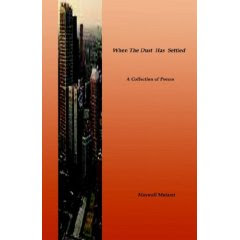Tagwira Update and Other Reflections on Writing
Sometimes, reading is like the writing process: the reader revises responses to a work of art with each step of the reading process. When I started reading Valerie Tagwira's The Uncertainty of Hope , I quickly found discomfort in the transposition of Shona and English sentences since I thought this tendency served some interests of no immediate importance to the art of the novel, for example, serving an audience foreign to the issues and context of the novel. Reading "But thank you very much my friend. Ndatenda sahwira " (16) still bothers me, but I have also discovered that this aspect of the novel may not be as important by the end of the story as I thought it was at the beginning. I am, however, beginning to grow nervous with the abundance of images of pessimism that pervade the plot,and I worry that if the novel falls short in exposing the complexities of life in the Zimbabwe of 2005, it may excel only in showing the complications of the life. Right, art imitates lif...

